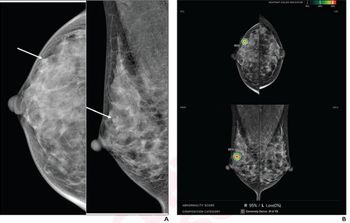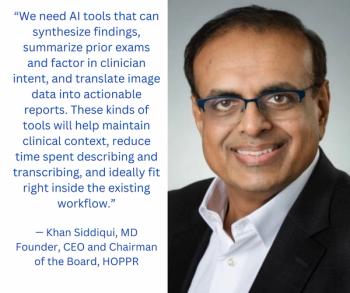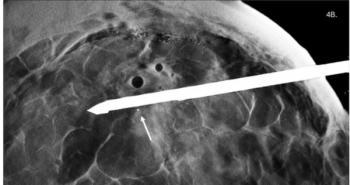
Maximizing Cloud-Based Capabilities in Radiology
In a recent interview at the Radiological Society of North America (RSNA) conference, Eliot Siegel, M.D., discussed a variety of potential benefits with cloud-based image management in radiology, ranging from enhanced data security and economies of scale to improved access to a variety of artificial intelligence (AI) solutions to increase efficiency.
While there are varied perspectives on what “the cloud” represents for radiologists, Eliot Siegel, M.D., sees the promise of increased efficiency and improved patient care as the field continues to grapple with increasing imaging volume and radiologist shortages.
Beyond off-site storage of medical imaging data, cloud-based resources can provide immediate access to timely PACS updates and alternative backup options, and potentially serve as a centralized hub that may help streamline access to a patient’s clinical history and past imaging from other institutions, noted Dr. Siegel during an interview at the recent
“The cloud represents a central repository that could be more patient-centered rather than institution-centered. That is a major advance,” said Dr. Siegel, a professor of Diagnostic Radiology and Nuclear Medicine and vice-chair of Information Systems at the University of Maryland School of Medicine.
Dr. Siegel also noted that cloud-based image management could enhance access to a variety of artificial intelligence (AI) platforms.
“Many of the AI vendors are offering software that is really interesting and can help me become safer, more efficient, more effective, and more productive. Many of those are things I need to consume in the cloud,” noted Dr. Siegel. “The potential of being able to send my images up to a site in the cloud and then be able to have all those different AI services and other services that I want to be able to directly interface with in the cloud is extraordinarily compelling.”
In conversations Dr. Siegel has had with information technology (IT) specialists and chief information officers (CIOs), he said he doesn’t hear concerns about data security that he has heard in years past about the cloud. While cost may be the biggest concern expressed about implementation of cloud-based image management, Dr. Siegel said there are considerable costs with local image storage, and it may get to an inflection point where economies of scale become advantageous with companies that provide cloud-based services.
For more insights from Dr. Siegel, watch the video below.
Newsletter
Stay at the forefront of radiology with the Diagnostic Imaging newsletter, delivering the latest news, clinical insights, and imaging advancements for today’s radiologists.














